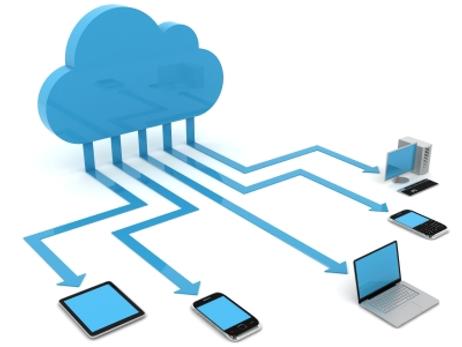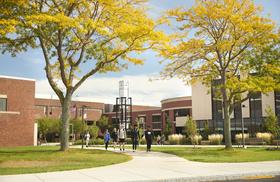The largest community college district in the country recently announced plans to move to the cloud, via Microsoft’s Live@EDU cloud suite. The Los Angeles Community College District (LACCD) has determined that Microsoft’s package will best meet the needs of its students, staff, and faculty. The rollout is scheduled for the beginning of the upcoming school year.
What the Cloud Can Do
According to a report at PC World, the decision by LACCD to move to the cloud began with a desire to have every student on each of the nine campuses obtain their own email account within the school system. This idea slowly spread beyond email capabilities to include IM, video, and audio conferencing and calendaring. The cloud suite will also allow students to prepare online documents to share, edit, and collaborate with professors and other students.
“Students and faculty, once they start learning all the capabilities, I expect they’ll realize it’s way more than email,” LACCD CIO Jorge Mata told PC World.
Some of the specific features offered with Microsoft’s Live@EDU include:
- Email and calendars with a 10GB inbox
- Additional file storage up to 25GB
- Instant messaging
- Video chat and audio conferencing
- Document sharing
- Mobile email
- Accessible through Web browsers for Mac, Windows, and Linux systems
- Easy to set up and manage
This video explains Microsoft's Cloud Services.
Until now, the nine campuses for the Los Angeles Community College District have determined whether to offer students the option of an email system via on-premise Microsoft systems. This will be the first time that all of the campuses provide a uniform communication system. In addition to being able to communicate with staff and students at their current campus, students and faculty will be able to reach those on other LACCD campuses as well.
This will offer significant benefits to professors who teach on more than one campus since they will now be able to streamline their communication system. It will also benefit students who are taking classes on more than one campus, for the same reason. This system will bring together the functions of all nine campuses under a single cloud application.
Microsoft’s Live@ EDU vs. Google Apps
Microsoft’s Live@EDU is the company’s platform for student communication and collaboration, The Seattle Times reports. The company has been recently battling Google Apps for some of the same large clients, including schools and government offices. In fact, the Seattle Times notes that Google Apps recently won a contract with the U.S. Department of Interior. It appears this round, featuring Los Angeles Community Colleges, went to Live@EDU. The platform currently services around 10,000 schools worldwide.
The community college system chose Microsoft’s system over Google Apps for a number of reasons, including security features, identity management, and the ability to integrate with Microsoft Exchange, according to Campus Technology. Familiarity with the Microsoft system was another selling point for the community college system. The technology also offered both front and back-end uniformity with the Outlook systems already used on the campuses.
“We needed a solution that would be easy to administer across all our colleges,” Mata was reported saying in Campus Technology. “One of the reasons we chose Microsoft Live@EDU over Google Apps for Education is because it provides us with simple and automated management along with the visibility and control we need to apply our policies across our student information systems.”
The Live@EDU team worked with SADA Systems to help LACCD streamline their account registration process so students automatically gain access to the system through their own Live@EDU account with they register at one of the colleges.
“Our unique partnership with Microsoft enables LACCD’s IT personnel to focus on the system’s more mission-critical IT goals,” Niv Dolgin, director of IT for SADA Systems, was reported saying at Campus Technology. “Streamlining the registration process is not only a win for LACCD IT personnel; it is a win for students and LACCD administrative staff.”
Microsoft Celebrates the Partnership
Although individual departments throughout the college system may continue to use Google Apps for email and collaboration if they choose, Microsoft’s Live@EDU will become the primary technology used by faculty, staff, and students throughout the college system. While the first goal is to get the email system up and running, the college does not expect it to stop there. Students and faculty will be able to use the cloud technology for a host of classroom purposes. There are even plans to integrate the system with the colleges’ alumni in the future.
This video explains Live@EDU.
Microsoft is celebrating the newly acquired account. Although Microsoft’s Live@EDU is free to use, the company counts on it because collaboration products like Outlook, SharePoint, and Lync are key components to the company’s financial health. Although Microsoft has dominated the market in the past, the move to cloud technology has resulted in stiff competition from companies like Google.
Google declined to comment on this recent move by LACCD, but Microsoft was quick to shout out its win through online news sources, including its own press releases.
“We are excited to see the largest community college district in the U.S. deploy Live@EDU to not only experience the benefits of a cloud-based collaboration service but to also roll out a technology that will develop students’ skills,” Sig Behrens, general manager of U.S. Education for Microsoft, stated in a press release at PR Newswire. “LACCD is committed to student employability and recognizes the value to its students of skills gained by using Microsoft technology and that the knowledge will serve them well as they prepare to enter the workforce.”
As more community colleges head to the clouds, communication, teaching, and learning may just become more streamlined and efficient.
Questions? Contact us on Facebook. @communitycollegereview












